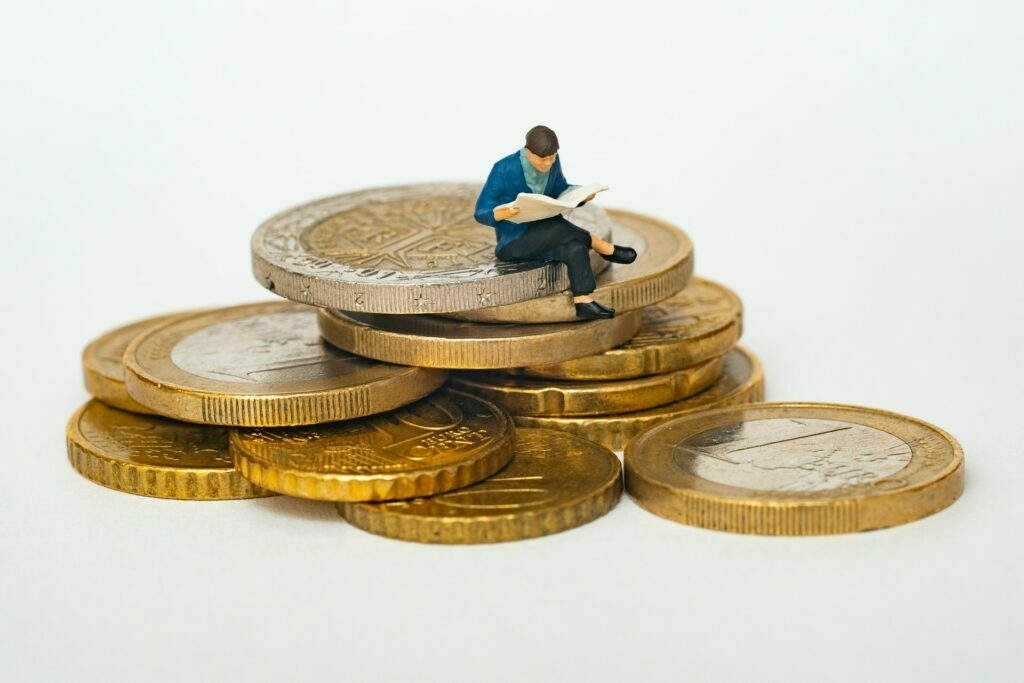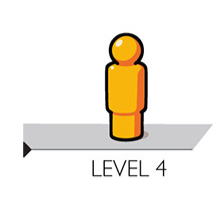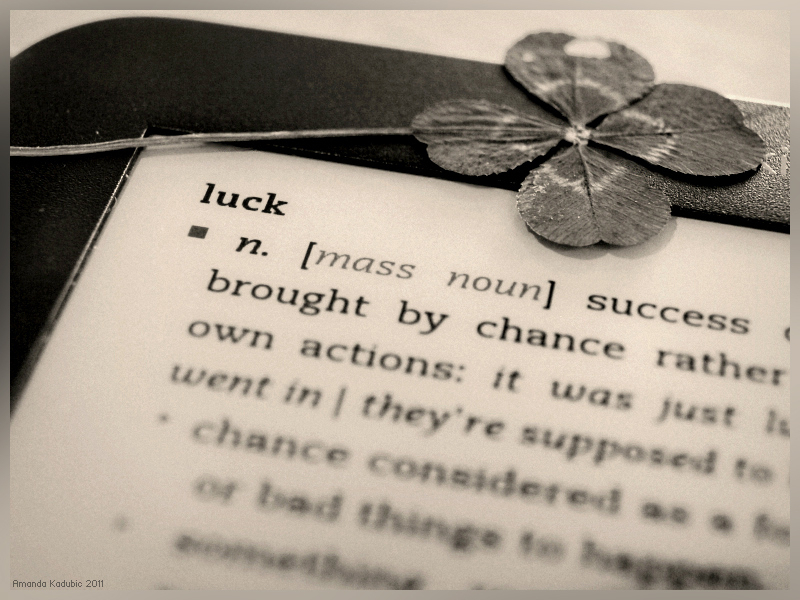The rich are scared we're going to eat them
I’m reading Roots at the moment, the novel by Alex Haley about an African man captured and sold into slavery. I’m at the point of the story where his daughter’s ‘massa’ gets spooked about a slave uprising.
It’s difficult not to draw parallels when reading about an apparent trend towards billionaires building luxury ‘bunkers’ with supplies and blast-proof doors. They would do well to worry, given the amount of inequality in the world.

One prevalent speculation that has circulated suggests that these billionaires might possess knowledge beyond the scope of the average person. The idea is that their vast resources are being channeled into constructing secure retreats as a form of preparation for potential global upheavals or crises. This speculation plays into the notion that these elite individuals may be privy to information that the general public is not, prompting them to take unprecedented measures to safeguard their well-being. Moreover, some fear that the escalating global tensions and geopolitical uncertainties may be driving these billionaires to prepare for worst-case scenarios, including the prospect of war.Source: Zuckerberg's Bunker Plans Fuel Speculation on Billionaires Building Bunkers | Decode Today
Image: DALL-E 3
Billionaires shouldn't exist, even if they're philanthropists
I’m sure Charles Feeney was a great guy, and it certainly sounds like he gave the money he amassed to very good causes (and anonymously too!)
The thing to remember when reading these stories, though, is that billionaires shouldn’t exist. They make their money off the back of workers and tax loopholes. I’d challenge anyone who says otherwise to send proof.
As I’ve said many times before, if a regular person wakes up with what they think is a ‘good idea’ but is actually misguided and dangerous, then nothing much is likely to come of it. But a billionaire, by dint of their huge unearned wealth can make it happen. And recently, we’ve had an object lesson in how that can go wrong… (cough Musk cough)

Feeney was a proponent of “Giving While Living,” believing he could make more of a difference in causes he cared about while he was alive, rather than setting up a foundation after he died, according to the Atlantic Philanthropies.Source: Charles Feeney, retail entrepreneur who gave $8 billion to charity, dies at 92 | CNN Business“It’s much more fun to give while you are alive than to give when you are dead,” Feeney said in a biography about him, “The Billionaire Who Wasn’t.”
Feeney set up the Atlantic Philanthropies in 1982, transferring all of his business assets to it two years later, according to the foundation. In 2020, the foundation closed its doors after it said it had successfully given away all of its funds.
In total, the Atlantic Philanthropies made grants totaling $8 billion across five continents — much of it anonymously, the foundation said. Donations supported education, health care, human rights and more. Feeney’s foundation donated to infrastructure in Vietnam, universities in Ireland and medical centers devoted to finding cures for cancer and cardiovascular disease, according to the foundation’s website.
Feeney chose to live the last three decades of his life frugally, his foundation said: He did not own a car or home, preferring to live in a rented apartment in San Francisco, according to the foundation.
Eating the rich is optional, taxing them is mandatory
The article in Insider discusses the findings of the 2022 World Inequality Report, which highlights extreme levels of wealth and income inequality globally. The report was coordinated by leading economists and debunks the trickle-down economic theory.
They found that the bottom half of the global population owns just 2% of total wealth, while the top 10% holds 76%. It also notes that billionaires now hold a 3% share of global wealth, up from 1% in 1995. As everyone knows, inequality is a result of political choices and the only way to fix it is through progressive wealth taxes and perhaps even reparations.

The data serves as a complete rebuke of the trickle-down economic theory, which posits that cutting taxes on the rich will "trickle down" to those below, with the cuts eventually benefiting everyone. In America, trickle-down was exemplified by President Ronald Reagan's tax slashes. It's a theory that persists today, even though most research has shown that 50 years of tax cuts benefits the wealthy and worsens inequality.Source: Huge 20-Year Study Shows Trickle-Down Is a Myth, Inequality Rampant | InsiderThe researchers are some of the leading minds on inequality in the entire field of economics. Chancel is the co-director of the World Inequality Lab, while Saez and Zucman have literally written a book on the rich dodging taxes and helped create wealth tax proposals for senators like Elizabeth Warren and Bernie Sanders.
[…]
Billionaire gains are a well-documented trend: The left-leaning Institute for Policy Studies and Americans for Tax Fairness found that Americans added $2.1 trillion to their wealth during the pandemic, a 70% increase.
Image: Mathieu Stern
Income Level 4
I’ve had reason to reflect on how easy my life is recently. Not only am I a straight, middle-aged, able-bodied white guy but, according to Gapminder, I’m living life in a prosperous country on ‘Level 4’.
Worth pondering.
People at Income Level 4 earn more than $32 a day. At this Income Level, we find thee richest billion on the planet, who work in jobs that typically require at least 12 years of education — something those on the lower Income Levels cannot currently aspire to.Source: Income Level 4 | GapminderPeople at this Income Level are able to buy consumer goods, fly abroad with their families on holiday, and eat out at restaurants. None of these luxuries are available to people living at Levels 1 – 3, but are considered normal by most at Level 4.
The food they eat is often highly nutritious and diverse, as well as being rich in protein and vitamins. People at Level 4 can even buy pre-prepared food to save them time on cooking.
At this Income Level, not only electricity but also Internet connections are extremely reliable. Nearly every home has at least one TV and computer, and kitchens are equipped with stoves, ovens, toasters, and microwaves. Homes also have baths and showers installed with both hot and cold water — another luxury that is extremely rare at any other Income Level.
Instead of bikes and mopeds, people living at Level 4 usually own a car — sometimes even two per family. Public transport is also organized and readily available to everybody.
Perhaps most importantly, life at Level 4 is more secure than it is for people at levels 1 – 3. Not only are doors and windows locked securely, valuable property is usually insured against damage or theft. People also have bank accounts, access to credit, and pension funds for when they retire. Healthcare is also readily available to people living at Level 4, with basic medication available at affordable rates from local shops, and advanced and emergency medical treatment available locally to almost everybody.
Tax and/or eat the rich
I’m essentially just bookmarking this in case I think that I’ve misremembered the astounding difference in global wealth between the top 1% and bottom 90% mentioned in this article
The report said that for every $1 of new global wealth earned by a person in the bottom 90%in the past two years, each billionaire gained roughly $1.7m. Despite small falls in 2022, the combined fortune of billionaires had increased by $2.7bn a day. Pandemic gains came after a decade when both the number and wealth of billionaires had doubled.Source: Call for new taxes on super-rich after 1% pocket two-thirds of all new wealth | The Guardian
Wealth is a product of luck
This seems obvious to me: that luck plays a great part in success. Well, serendipity, perhaps which can always be given a helping hand by elite networks and pushy parents…
The conventional answer is that we live in a meritocracy in which people are rewarded for their talent, intelligence, effort, and so on. Over time, many people think, this translates into the wealth distribution that we observe, although a healthy dose of luck can play a role.Source: If you’re so smart, why aren’t you rich? Turns out it’s just chance. | MIT Technology ReviewBut there is a problem with this idea: while wealth distribution follows a power law, the distribution of human skills generally follows a normal distribution that is symmetric about an average value. For example, intelligence, as measured by IQ tests, follows this pattern. Average IQ is 100, but nobody has an IQ of 1,000 or 10,000.
The same is true of effort, as measured by hours worked. Some people work more hours than average and some work less, but nobody works a billion times more hours than anybody else.
And yet when it comes to the rewards for this work, some people do have billions of times more wealth than other people. What’s more, numerous studies have shown that the wealthiest people are generally not the most talented by other measures.
What factors, then, determine how individuals become wealthy? Could it be that chance plays a bigger role than anybody expected? And how can these factors, whatever they are, be exploited to make the world a better and fairer place?
Image: CC BY-ND fearthekumquat
100% inheritance tax?
If we can’t stop people raking up ridiculous sums of money, we can definitely prevent them passing on that wealth to their kids. Thankfully, more enlightened rich people (in this case actor Daniel Craig) are already putting their own measures in place.
In a Hollywood interview published this week in Candis magazine, Mr Craig made reference to Andrew Carnegie, the Scottish-born US industrialist and one of the wealthiest men in history.Source: ‘Inheritance is distasteful’: Daniel Craig’s children will not be getting his Bond millions | The Telegraph“Isn’t there an old adage that if you die a rich person, you’ve failed?” he said. “I think Andrew Carnegie gave away what in today’s money would be about $11 billion, which shows how rich he was because I’ll bet he kept some of it too.“
But I don’t want to leave great sums to the next generation. I think inheritance is quite distasteful. My philosophy is: get rid of it or give it away before you go."
Unless one is a genius, it is best to aim at being intelligible

👯♀️ Secrets of the VIP Party: Why the 1% Love ‘Ritualised Waste’ — "Post-pandemic, in a broader sense, you glimpsed an immediate reckoning and disgust with ostentatious displays of wealth in the context of COVID-19. We saw some instances where people would make statements like ‘we’re all in this together’, while broadcasting from their luxury yacht or private island, followed by a backlash. I think they’ve quickly learned not to do that since…"
This is an incredible read: an interview with a former model turned sociology professor.
💳 Germany To Let Citizens Store ID Cards On Smartphone — "The Interior Ministry said Wednesday that from this fall, citizens will be able to use the electronic ID stored in their smartphones together with a PIN number to prove they are who they claim to be when communicating with authorities or private businesses."
It's Germany, so I'm sure they'll do this sensibly, but it's incredible to think how quickly smartphones have become an essential part of our everyday life.
🏛️ 'A very dangerous epoch': historians try to make sense of Covid — "It is not just the Covid pandemic that can make these feel like unusually significant times. Populism, Trump’s rise and (perhaps) fall, Brexit, the Black Lives Matter and #MeToo protests, mass movement of refugees, the increased might of both China and India and many other issues have contributed to a sense of humanity having reached a historic moment, all while the climate crisis rages with ever more urgency."
People always think they're living through unprecedented times. But in our case, we probably are.
🚸 Why there's no such thing as lost learning — "The fact is that we – as a community of politicians, teachers and education experts – decide what any child must know, understand or be able to do at each age, not some natural law of learning. Why should a child know the structure of a cell membrane by the age of 16? I couldn’t know that information at 16 because it had not yet been fully discovered and described. But I learned it at a later stage."
This is a useful post to point people towards, as the author does a great job of pointing out the ridiculousness of putting an arbitrary body of knowledge before the well-being of young people.
👑 Should Elizabeth II be Elizabeth the Last? At least allow Britain a debate — "But none of [these revelations] reflect the real damage the monarchy inflicts on us. It’s not their money nor their abuse of power, but their very existence that ambushes and infantilises the public imagination, making us their subjects in mind and spirit."
My views on privilege hardly need rehearsing here, but suffice to say that one of the main problems with our tiny island is the delusions of grandeur we have through outdated institutions such as the monarchy.
Quotation-as-title by Anthony Hope. Image by Tyler Nix.
As scarce as truth is, the supply has always been in excess of demand

💬 Welcome to the Next Level of Bullshit
📚 The Best Self-Help Books of the 21st Century
💊 A radical prescription to make work fit for the future
👣 This desolate English path has killed more than 100 people
Quotation-as-title by Josh Billings. Image from top linked post.
The world needs less philanthropy and more equality
I've been skeptical about the motives of philanthropic organisations for a while now. This article in The Guardian is a long read, but worth it.
Here's an excerpt:
The common assumption that philanthropy automatically results in a redistribution of money is wrong. A lot of elite philanthropy is about elite causes. Rather than making the world a better place, it largely reinforces the world as it is. Philanthropy very often favours the rich – and no one holds philanthropists to account for it.
The role of private philanthropy in international life has increased dramatically in the past two decades. Nearly three-quarters of the world’s 260,000 philanthropy foundations have been established in that time, and between them they control more than $1.5tn. The biggest givers are in the US, and the UK comes second. The scale of this giving is enormous. The Gates Foundation alone gave £5bn in 2018 – more than the foreign aid budget of the vast majority of countries.
Philanthropy is always an expression of power. Giving often depends on the personal whims of super-rich individuals. Sometimes these coincide with the priorities of society, but at other times they contradict or undermine them. Increasingly, questions have begun to be raised about the impact these mega-donations are having upon the priorities of society.
The immorality of retaining wealth
The image I’ve chosen for this post came via social.coop rather than the article cited, but it does indicate where non-inherited wealth comes from. This wealth is then often used for investment or speculation that then becomes unearned income.
I like the way that the author frames things in terms of how much people retain, rather than how much they earn:
Note that this is a slightly different point than the usual ones made about rich people. For example, it is sometimes claimed that CEOs get paid too much, or that the super-wealthy do not pay enough in taxes. My claim has nothing to do with either of these debates. You can hold my position and simultaneously believe that CEOs should get paid however much a company decides to pay them, and that taxes are a tyrannical form of legalized theft. What I am arguing about is not the question of how much people should be given, but the morality of their retaining it after it is given to them.Also, I like the idea of a 'maximum moral income':
We can define something like a “maximum moral income” beyond which it’s obviously inexcusable not to give away all of your money. It might be 5o thousand. Call it 100, though. Per person. With an additional 50 allowed per child. This means two parents with a child can still earn $250,000! That’s so much money. And you can keep it. But everyone who earns anything beyond it is obligated to give the excess away in its entirety. The refusal to do so means intentionally allowing others to suffer, a statement which is true regardless of whether you “earned” or “deserved” the income you were originally given. (Personally, I think the maximum moral income is probably much lower, but let’s just set it here so that everyone can agree on it. I do tend to think that moral requirements should be attainable in practice, and a $30k threshold would actually require people experience some deprivation whereas a $100k threshold indisputably still leaves you with an incredibly comfortable lifestyle better than almost any other had by anyone in history.)Source: Current Affairs



